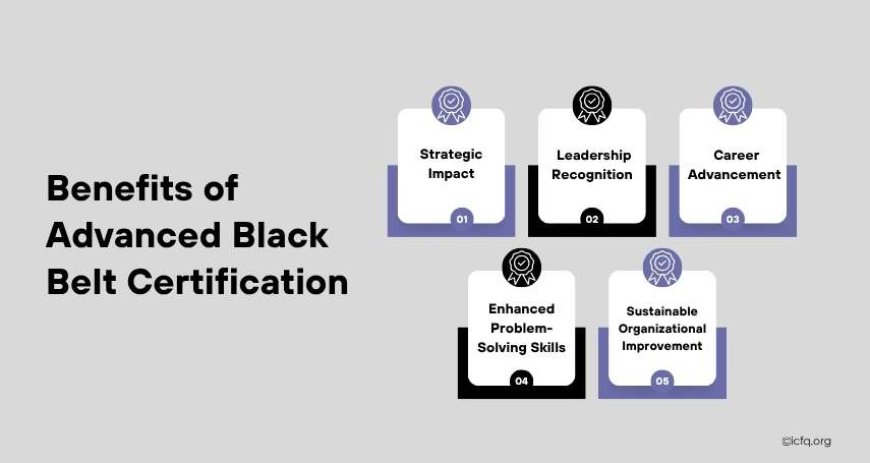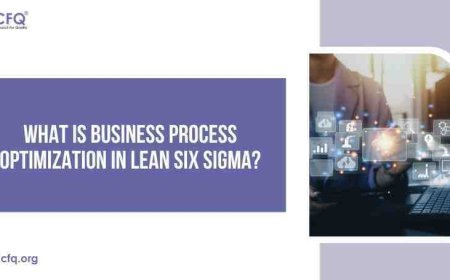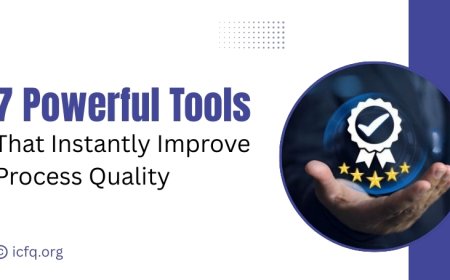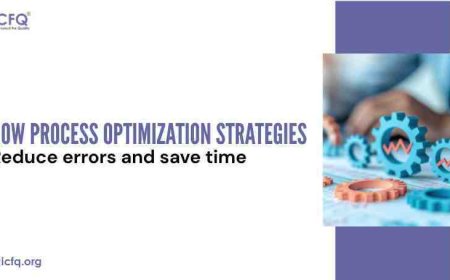How Advanced Black Belt Training Works
Learn how Advanced Black Belt training works, including Lean Six Sigma methods, project management, leadership, and process improvement skills.

Do you want to lead bigger projects, solve complex problems, and make your organization more efficient?
Are you looking for a way to guide teams, use data effectively, and create lasting improvements? If yes, earning an Advanced Black Belt (ABB) certification is a smart step.
Advanced Black Belt training is the highest level of Lean Six Sigma certification. It gives professionals the skills to handle enterprise-level projects, mentor Black Belts and Green Belts, and make data-driven decisions that improve processes across the organization. With ABB training, you learn how to lead change, reduce errors, and create a culture of continuous improvement.
Background of Advanced Black Belt
The Lean Six Sigma methodology originated in the 1980s at Motorola and gained prominence in companies like General Electric. While Black Belt training focuses on leading projects and analyzing processes, organizations realized the need for advanced leaders who can manage portfolios, mentor teams, and integrate Lean Six Sigma into corporate strategy.
This led to the development of Advanced Black Belt programs, designed to produce professionals who combine statistical expertise, strategic thinking, and leadership skills to deliver measurable results across the enterprise.
What Is Advanced Black Belt Training?
Advanced Black Belt (ABB) training is the highest level of Lean Six Sigma certification focused on strategic leadership, complex problem-solving, and organizational transformation. Unlike Green or Black Belt programs that emphasize project-level improvement, ABB equips professionals with the skills to drive enterprise-wide initiatives, mentor Black Belts, and influence decision-making at the executive level.
ABB professionals are not only experts in data-driven problem solving but also in change management, ensuring process improvements are sustainable and aligned with long-term business goals.
Who Should Pursue Advanced Black Belt Training?
Advanced Black Belt training is ideal for:
-
Experienced Black Belts looking to expand their strategic and leadership skills.
-
Process improvement professionals aiming to lead enterprise-level initiatives.
-
Managers and executives are seeking to implement Lean Six Sigma culture across departments.
-
Consultants who advise organizations on process optimization.
Candidates typically need three to five years of Lean Six Sigma experience, completed Black Belt certification, and a track record of successful project implementation.
How Advanced Black Belt Training Works
Advanced Black Belt training combines advanced statistical tools, leadership principles, and real-world applications. Most programs are structured around several key components:
1. Advanced Statistical Analysis
ABB training delves deeper into data than Black Belt programs, equipping professionals with the ability to:
-
Conduct multivariate analysis for complex process interactions.
-
Use design of experiments (DOE) to identify optimal process conditions.
-
Apply predictive modeling and regression analysis for forecasting outcomes.
-
Analyze process capability across multiple variables and systems.
This rigorous statistical approach ensures that ABB professionals can solve high-impact, organization-wide, wide problems with confidence.
2. Strategic Project Management
Advanced Black Belt participants learn to manage multiple projects simultaneously, aligning them with corporate goals. This includes:
-
Prioritizing initiatives based on ROI and business impact.
-
Developing project portfolios to optimize resource allocation.
-
Integrating Lean Six Sigma projects with strategic planning cycles.
Unlike project-level Black Belt work, ABB focuses on enterprise transformation, ensuring that process improvements support overall organizational strategy.
3. Leadership and Mentorship
ABB programs emphasize people leadership. Professionals are trained to:
-
Mentor Black Belts and Green Belts, transferring knowledge and best practices.
-
Lead cross-functional teams, managing change and resolving conflicts.
-
Communicate effectively with senior management and stakeholders.
This leadership component ensures that ABB-certified professionals can influence organizational culture and drive sustainable improvement.
4. Change Management and Organizational Culture
Implementing process improvements at scale requires more than tools, it requires organizational buy-in. ABB training covers:
-
Change management frameworks to guide cultural transformation.
-
Techniques to overcome resistance and motivate teams.
-
Aligning Lean Six Sigma initiatives with corporate values and strategy.
ABB professionals become agents of change, capable of embedding process excellence throughout the organization.
5. Real-World Projects
Most ABB programs require candidates to complete real-world, enterprise-level projects. These projects:
-
Address critical business challenges with measurable impact.
-
Require data collection, analysis, and solution implementation.
-
Include mentorship or coaching responsibilities for team members.
Successful project completion is often a requirement for final certification, ensuring candidates apply their skills in practical scenarios, not just theory.
Duration and Format of Advanced Black Belt Training
ABB programs vary in length and format, but typically include:
-
Duration: 6–12 months, depending on the intensity of the program.
-
Format: Online, in-person, or hybrid programs with modular learning.
-
Components: Lectures, workshops, case studies, project work, and mentorship sessions.
-
Assessment: Combination of written exams, project presentations, and practical evaluations.
This structure allows participants to learn progressively while applying skills in real organizational contexts.
Benefits of Advanced Black Belt Certification

1. Strategic Impact
ABB professionals drive initiatives that impact multiple departments, aligning process improvements with corporate goals.
2. Leadership Recognition
Holding an ABB certification demonstrates expertise, leadership skills, and the ability to mentor and influence teams.
3. Career Advancement
ABB-certified professionals often move into executive roles, process excellence leadership, or consultancy positions with higher responsibility and compensation.
4. Enhanced Problem-Solving Skills
ABB equips individuals with advanced statistical and analytical tools, enabling them to solve the most complex organizational challenges.
5. Sustainable Organizational Improvement
ABB professionals ensure that Lean Six Sigma practices are embedded in the corporate culture, leading to lasting efficiency gains.
Challenges in Advanced Black Belt Training
While ABB training is highly rewarding, it comes with challenges:
-
Time Commitment: Managing work responsibilities while completing rigorous training.
-
Complex Statistical Concepts: Advanced analysis may require revisiting fundamentals.
-
Project Accountability: Enterprise-level projects demand high accountability and results.
ABB programs help overcome these challenges through structured guidance, mentorship, and support systems.
Solutions to Common Challenges
To succeed in ABB training:
-
Plan and Prioritize: Allocate dedicated time for learning and project work.
-
Leverage Mentorship: Use instructors and senior ABBs for guidance on complex topics.
-
Engage Teams: Involve project teams early to ensure collaboration and smoother implementation.
-
Use Practical Tools: Apply real-world software and analytics tools to reinforce learning.
By combining planning, mentorship, and hands-on practice, candidates can overcome challenges and achieve certification successfully.
Advanced Black Belt training is the highest level of Lean Six Sigma expertise, equipping professionals with the strategic, analytical, and leadership skills needed to transform organizations. By understanding how advanced black belt training works, candidates can tackle complex challenges, lead enterprise-level projects, and mentor future Black Belts, ensuring that process improvements are sustainable and impactful.
For organizations, ABB-certified professionals are invaluable assets, driving efficiency, reducing waste, and embedding a culture of continuous improvement across all levels.
In short, Advanced Black Belt training isn’t just certification, it’s a roadmap to leadership, strategic impact, and organizational excellence.




























